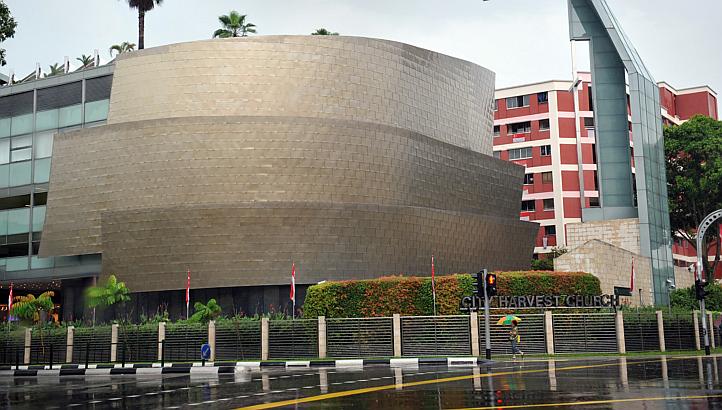By Augustine Low


“If I spend $1 million and we win 138,000 souls, that means every soul is worth less than $1,000. To me, that is a good buy.”
Indonesian businessman Wahju Hanafi could not have put it more explicitly when testifying at the ongoing trial of City Harvest Church leaders. He was justifying his $1 million-a-year donation to the church for its Crossover Project – the church’s way of evangelising through pop music.
Likening church donation to a “good buy” shows the extent of the culture to commodify everything.
But in truth, commercialisation of spirituality has its roots many years ago, in places as diverse as India and the United States, where empires have been built to cater to people’s dire need for soul searching.
The call to heal, to find bliss, to see truth and light – often in the form of a pop sub-culture – has resonated with masses across the continents.
When I was in California last November, curiosity drove me to visit Crystal Cathedral in Orange County, which boasts the world’s largest reflective glass building. At its peak several years ago, the mega church was dubbed the Hollywood church, with its movie star guest speakers and weekly ‘live’ TV shows.
But the church went bankrupt in 2010.
For every such story gone awry, there are dozens of success stories, whether of organised faith or alternative belief systems, where the following can be mind boggling.
The question that people have attempted to ask, but where the answer is often elusive, is: What is the price of finding God?
In the view of Mr Wahju Hanafi in the City Harvest Church trial, if it’s less than $1,000 per soul, it’s a “good buy”.
Despite all that has happened in this world, religion continues to possess power and moral authority. And rightly so, one could argue.
Religion’s positive force, like so much else in the world, flows from thought.
The challenge then is to avoid commercialised religion turning into modern business, into becoming pop sub-culture.
Which in turn suggests that the challenge for the state against the leaders of City Harvest Church in the ongoing trial is indeed a very delicate one which requires a deft balancing act.
For the general public, it makes for compelling following.
Augustine Low is a communications strategist.

